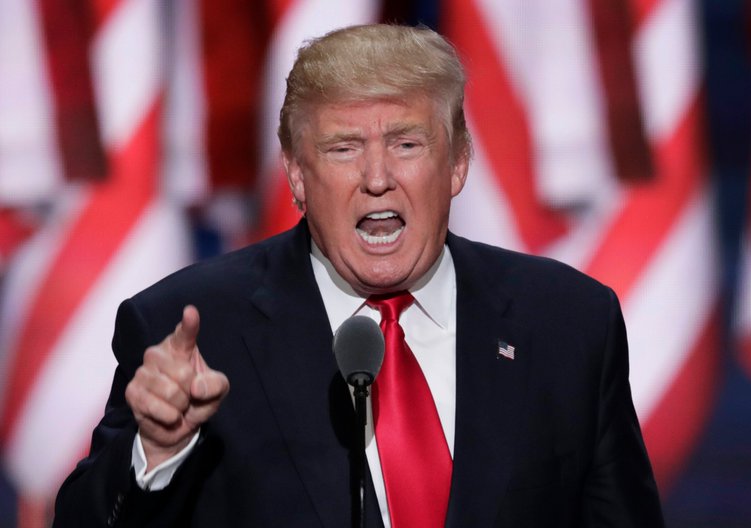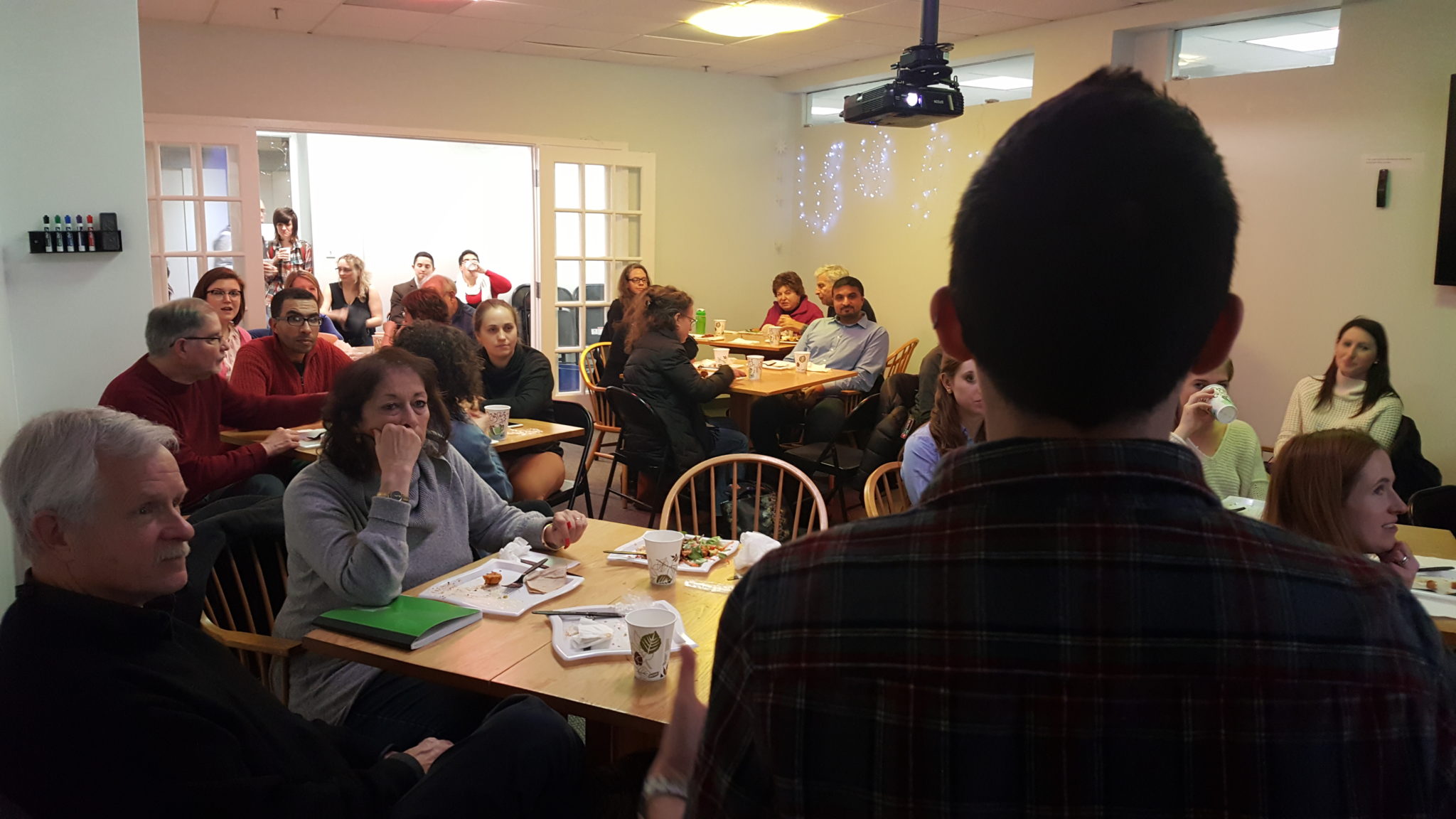This Presidents' Day is a fitting time to reflect on President Trump’s first year in office – over twelve months marked by egregious attacks on our civil rights and liberties by the entire administration.
As an organization, our allegiance is to the Constitution and our mission is to protect the constitutional rights of every person in this country – regardless of race, gender, sexuality, or religion. In matching that mission, the ACLU has challenged the administration of every president since Woodrow Wilson.
But from racially-motivated immigration policies, to relentless attacks on freedom of the press, to systemic voter disenfranchisement, to his persistent war on women – President Trump has endangered our freedom more than any president in decades.
That’s why we’ve been fighting on the frontlines to stand up for the people of Massachusetts in the courts, in the legislature, and on the streets:
- Last January, President Trump signed his first Muslim ban. We told President Trump we would see him in court if he ordered this unconstitutional ban on Muslims, immigrants, and refugees. He tried, and federal courts in Boston and throughout the nation stopped it in its tracks.
The fight continues: In December, the Supreme Court allowed the latest version of the ban to go into effect until the legal challenges are fully decided. As a result, the United States currently bans nationals of six Muslim-majority countries and a some North Koreans and Venezuelans from coming to the country on most types of visas, even if they have family here in the US.
- Throughout the year, we’ve seen too many families torn apart and lives disrupted by the Trump Administration’s xenophobic immigration policies. From Springfield to Chelsea, we’ve successfully secured the release of several men and women who were unlawfully detained by U.S. Immigration and Customs Enforcement (ICE). But still, too many lives and communities are impacted by the administration’s detention and deportation machine. That’s why we continue to advocate for safe communities throughout Massachusetts in the State House and through our Immigrant Protection Project.
- In December, President Trump signed another executive order, one that impacts contraception coverage. We filed an amicus brief in support of Attorney General Maura Healey’s lawsuit against the Trump administration, arguing that the opt-out policy for contraception coverage discriminates against women.
The lawsuit followed an important reproductive justice victory here in Massachusetts: the Commonwealth swiftly passed a new law to protect and expand contraceptive access for patients throughout Massachusetts. At a time when the Trump Administration has once again chosen cruelty over care, we are proud that Massachusetts is leading the nation in protecting women and their families.
- Voting rights is yet another target of the Trump administration. Even before the election, the ACLU of Massachusetts was pressing for voting rights in the courts and legislature. In November 2016, we won an early-stage victory for voting rights when a court ruled that the 20-day voter registration cut-off day prevented people from exercising their franchise. That case will be argued on appeal in March 2018. Meanwhile, in the legislature, we are working with the voting rights coalition to pass a bill creating a system of automatic voter registration. If passed, this would guarantee that all voters in Massachusetts can make their voices heard at the ballot box.
- The ACLU also remains is a nationwide leader in defending LGBTQ rights against attacks by the Trump administration. At the national level, the ACLU successfully blocked efforts by the administration to discharge service members just because they are transgender. In Massachusetts, we are working with the Freedom For All Massachusetts Coalition to defeat a November 2018 ballot initiative to strip transgender people of equal protection of the law in Massachusetts (effectively rolling back legislative protections that we helped to pass two years ago).
Throughout the year, we will continue to make good on our promise to challenge the Trump administration’s efforts to roll back core civil rights and civil liberties. All Americans have an opportunity and obligation to resist these continuing attacks on core freedoms. Working together, we can emerge with our civil rights and civil liberties intact, with a more engaged citizenry, and with a more resilient republic.
Carol Rose is the executive director of the ACLU of Massachusetts.
Date
Monday, February 19, 2018 - 11:00am
Featured image
Show featured image
Hide banner image
Related issues
Freedom of Religion and Belief
Immigrants' Rights
Reproductive Freedom
Voting Rights
Show related content
Tweet Text
[node:title]
Type
Menu parent dynamic listing
Style
Standard with sidebar
This blog was written by Rahsaan Hall, ACLU of Massachusetts' Racial Justice director and director of the What a Difference a DA Makes campaign. It was originally published on the campaign's website.
District Attorneys are among the most powerful people in the criminal legal system in Massachusetts, and play a major role in determining the way criminal cases are initiated and ultimately resolved. They wield a substantial amount of power throughout the judicial process – from charging decisions to sentencing recommendations.
As a former prosecutor, take it from me: DAs make a difference in people’s lives, communities, and the criminal legal system. Here’s how:
Their main responsibility is to pursue justice on behalf of the Commonwealth when other people are accused of breaking the law. When the police arrest someone and charge them with a crime in district court, the local District Attorney’s office has the power to prosecute those cases, divert the accused to a program or drug treatment, or dismiss the case altogether.
Once a person is arraigned or has the charges against them formally read, a judge will make a bail determination. Here’s where the DAs come in: it is rare for a judge to order bail if the local District Attorney’s office has not made a request for bail. Despite the presumption of innocence, the court will oblige the prosecutor’s request and order people to be held unless bail is paid or other restrictions – like travel limitations –followed. In addition to making the initial bail request, DAs can ask a judge to revoke a person’s bail and take them back into custody, even if they previously made bail.
The DA’s office also has the responsibility of providing the evidence they will use to prosecute the case to the person charged. In addition to being in control of the evidence, they also have the police who work with them to collect and produce the evidence. Although a person charged with a crime is presumed innocent and not required to prove their innocence, they may be the best person to know exculpatory evidence – or evidence that’s favorable to the defendant. That means they may need to hire an investigator to gather evidence that the District Attorney’s office doesn’t have.
There are also situations where District Attorneys can take people’s property, including money, even if the person hasn’t been convicted of a crime. Civil asset forfeiture is a way for prosecutors to seize property and money that law enforcement officers believe is connected to criminal activity. Here in Massachusetts, our standard for taking that money is very low, and the burden is on the owner of the property to prove it is not connected to criminal activity. As a result, people arrested and charged with low-level offenses have to fight in court to retrieve money that was seized by police and being forfeited by prosecutors. Massachusetts DAs are encouraged to spend at least 10 percent of forfeited funds on community-based crime prevention initiatives, but many fail to meet that recommendation.
District Attorneys also have a powerful tool to help “resolve” cases: mandatory minimums. These are statutorily mandated sentences that cannot be reduced by a judge. People serving mandatory minimums do not receive credit for participation in programs or for positive behavior while incarcerated. DAs use these mandatory minimum sentences to leverage guilty pleas from people who don’t want to run the risk of facing a prolonged mandatory sentence after trial. People charged with mandatory minimums often plea to a sentence that the prosecutor wants, not what a judge determines is best.
As the top prosecutor, DAs also help set policies. Despite efforts to reform the criminal legal system, DAs often stand in opposition to meaningful reforms. Over the last several legislative sessions, community activists, academics, and criminal law reform advocates have championed evidence-based reforms to decrease incarceration and promote a more fair and equitable system of justice. District Attorneys, however, have consistently blocked these efforts by using their influence in the legislature to encourage lawmakers to oppose reforms. In fact, despite crime survivors’ desires for a more rehabilitative system, DAs have opposed these important reforms in favor of harsher sentences or policies that increase their power.
Government works best when people know what it’s doing – and that’s why we’re setting out as a campaign and a network to inform voters about one of our most powerful elected officials. Stay tuned for other resources – blog posts like this one, videos, and other learning tools – so we can hold our local elected District Attorneys accountable.
Originally posted on DAdifference.org
Date
Wednesday, January 31, 2018 - 4:45pm
Featured image
Show featured image
Hide banner image
Related issues
Criminal Law Reform
Racial Justice
Show related content
Tweet Text
[node:title]
Type
Menu parent dynamic listing
Style
Standard with sidebar
In February 2017, I joined the ACLU of Massachusetts as the volunteer coordinator, to integrate a growing volunteer base into the ACLU’s work. In the wake of the 2016 presidential election, I knew that more people than ever before would be asking us, “What can I do to protect our freedoms under the ever-growing threats of the Trump administration?” What I didn’t know, was how quickly and to what extent our volunteer base would grow.
Rewind to the days leading up to the election. In November 2016, the ACLU of Massachusetts volunteer program had 100 members. In the following months, that volunteer base exploded to what is now close to 1,500.
The energy and commitment of our volunteers over the last year helped build the ACLU of Massachusetts’ capacity to work on new campaigns and projects, and face new challenges head on. Volunteers helped push the ACLU’s policy and legislative work forward, changing the lives of people affected by those policies.
In early 2017, we launched the Freedom Agenda, our plan for resisting the threats of the Trump administration through state and local legislation.
Hundreds of volunteers have made phone calls, sent emails, lobbied their legislators, collected postcards, and protested in the streets to support this initiative.
In June, state legislators held a hearing on the Safe Communities Act, legislation that would ensure our local resources are being used to keep our communities safe instead of fueling the Trump deportation machine. Supporters packed the hearing room, outnumbering the opposition and sending a clear message that Massachusetts residents value their neighbors and loved ones, regardless of immigration status. Through the hearings, almost 100 volunteers visited their legislators’ offices to ask them to support the bill.
Volunteers also hit the streets in support of immigrants’ rights. Whether it was rally to pass the Safe Communities Act or a protest demanding that migrant workers picked up by ICE be returned to their families, volunteers showed up, energized and ready to fight for the rights of all Bay Staters.
ACLU of Massachusetts Lobby Day, September 2017.
We were back at the State House in September for the ACLU of Massachusetts’ first ever Lobby Day. From phone banking, to preparing materials, to showing up at their legislators’ offices, Lobby Day was made possible by volunteers from across the Commonwealth. 200 people met with their legislators and advocated for the Freedom Agenda. And when voters make their voices heard, legislators listen.
As our volunteers know, advocating takes persistence. Lobby Day wasn’t the first time and won’t be the last time we all need to come together and raise our voices.
Through the fall, ahead of both the House and Senate votes on the most important criminal justice reform legislation in many years, volunteers jumped on the phones to call their legislators and encourage fellow constituents to do the same. While the bill contained many positive reforms, it also included dangerous wiretap amendments that would have drastically expanded the government’s ability to spy on residents’ phone and digital communication. In a huge upset, we defeated the wiretap amendments in both chambers. We also successfully advocated in favor of amendments that repeal some mandatory minimum sentences for drug offenses. Now, a small group of legislators will debate the bill in a “conference committee” to draft a final version. We’ll be counting on ACLU volunteers once again to hold their legislators accountable to passing legislation that reflects our values and makes Massachusetts a more fair and just state.
On the local level, volunteers defended immigrant rights in Salem. A small but vocal opposition put a question on the ballot, trying to overturn the ordinance and leave their immigrant neighbors vulnerable. ACLU volunteers joined the Yes on 1 campaign to uphold the ordinance by making phone calls and knocking on doors to make sure voters knew what was at stake on Election Day. In the end, Salem voters overwhelmingly chose to keep Salem a welcoming city.
Time and time again, ACLU volunteers answer the call to action - so many times that I can’t do justice here to all that they do.
Much of what our volunteers do is behind the scenes, and as volunteer coordinator, I get to see the hard work they put in from start to finish. I am so proud of what we’ve accomplished this year, and proud to be a part of building this incredible community of activists. If you aren’t yet involved in our program, I encourage you to sign up today.
Freedom can’t defend itself. That’s why it’s going to take all of us to ensure that Massachusetts protects the freedoms of all of its residents.
Become an ACLU volunteer
Olivia Santoro is the volunteer coordinator at the ACLU of Massachusetts.
Date
Thursday, December 21, 2017 - 8:30pm
Featured image
Show featured image
Hide banner image
Related issues
Immigrants' Rights
Show related content
Tweet Text
[node:title]
Type
Menu parent dynamic listing
Show PDF in viewer on page
Style
Standard with sidebar
Show list numbers
Pages



